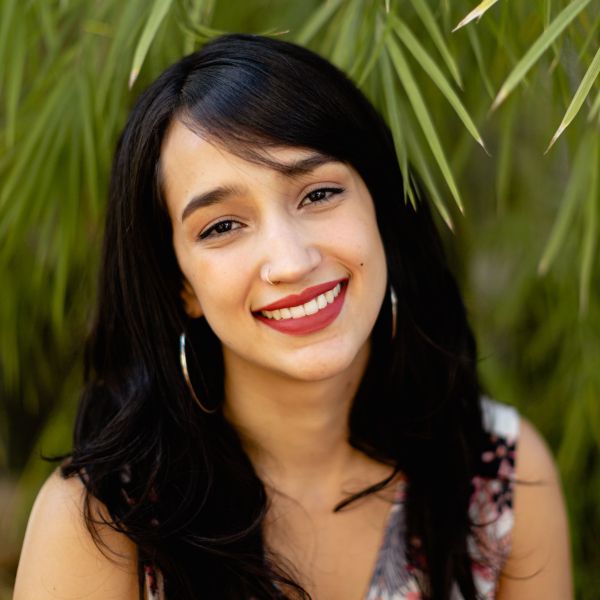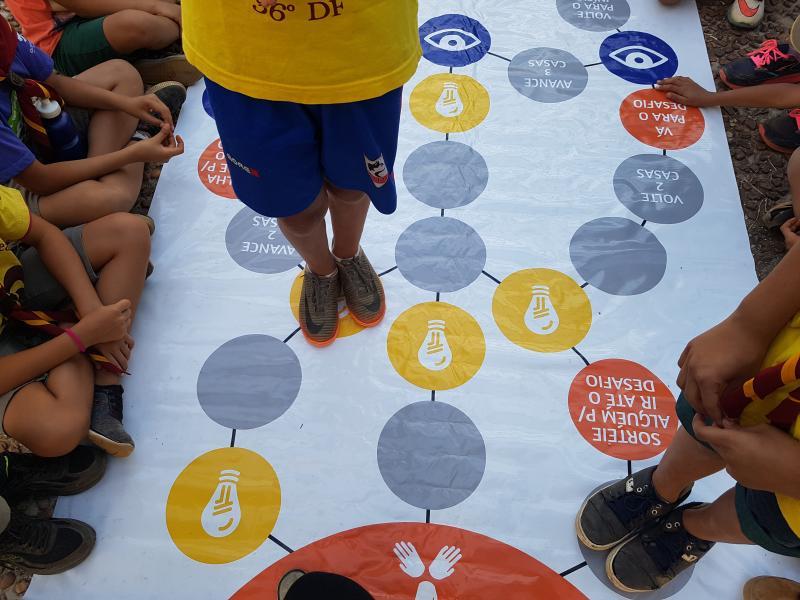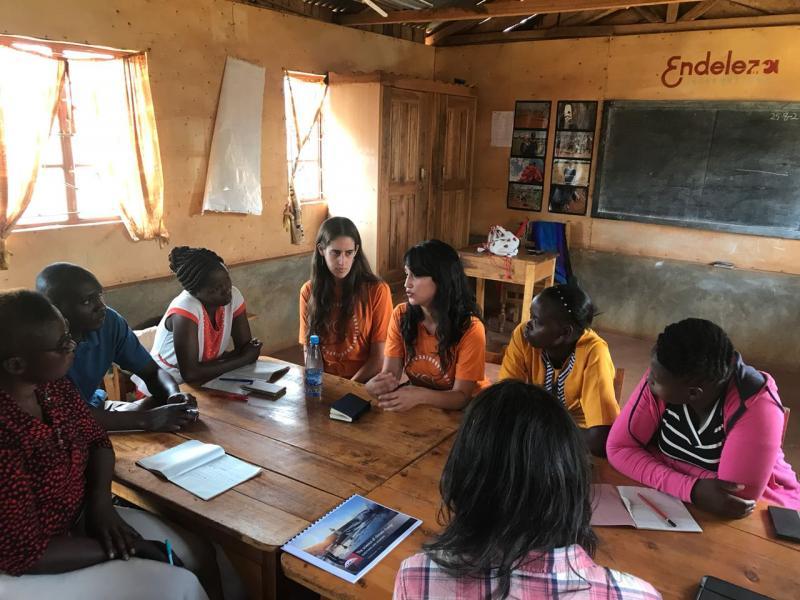Image

Brasília, Brazil SEE OTHER BIOS HERE
Age: 26
Eduarda is working to mobilize Brazilian youth to tackle climate change through capacity building and advocacy.
Tell us about yourself!
Growing up in a resource rich country, I developed an environmental awareness from an early age. This was bolstered when I was ten, after a teacher told me to watch Al Gore’s “An Inconvenient Truth,” which made me realize the importance of climate action. I felt compelled to dedicate my life to raising awareness about climate change, and since my first nudge was given by a teacher, I knew that promoting change would involve environmental education.
Learning about public policy during my undergraduate studies also made me realize the importance of politics to create lasting change for the environment. At the time, I was involved in education programs teaching English and politics to high school students living in the outskirts of Brasília, which made me understand the true value of sharing knowledge with others. Young people are thirsty for knowledge!
I was lucky to be discovered by Engajamundo, a youth-led NGO (“Engaging the World” in English) in Brazil, where I started doing environmental education by giving capacity building workshops to young people. After graduating, I started working as a climate change consultant at the Inter-American Development Bank while still at at Engajamundo. I also coordinated a solar energy project on the importance of renewables, training youth to push decision-makers to invest in clean technologies. Now, I am preparing to start my MPA at Columbia University and am looking forward to creating solid partnerships between Engajamundo and other youth organizations.

I always say my inspiration was Al Gore’s “An Inconvenient Truth.” Although this completely changed my life and personal goals, I became truly inspired to become a champion for the environment after I joined Engajamundo. It is refreshing to learn that you are not alone. I entered a network of young people from the most diverse backgrounds, social classes, and ethnicities in my own country, all who were working to stop climate change. These people are my greatest source of inspiration.
One particular person who takes my breath away whenever she speaks is Raquel Rosemberg, one of Engajamundo’s founders. She was also devoted to the environment since she was a child. After building this youth network, instead of choosing a traditional career path, she moved to the middle of the Amazon forest to work with projects that empower indigenous women through environmental activities. Those who are willing to abandon everything for the environment are the ones that give me hope and strength to continue.
What advice would you give to the next generation of leaders that are looking to bring about positive change in their communities through EE?
I would say that studying is important, but sometimes you only see the real impact once you leave the classroom. Life taught me the most when I implemented projects and put ideas into practice. With environmental education, teaching should not be our main objective, because even educators are always learning. I strongly believe that building environmental awareness through education means building solutions with everyone involved in a collective way, because sometimes the “student” knows more than the “teacher”.
Furthermore, EE will not solve the climate crisis without political action. Young people should always be aware of their potential to make a change in the environment by pressuring the politicians they elected. Bringing positive change to a community should start with political awareness and youth empowerment.

What keeps you motivated, inspired, or hopeful for the future?
When I look back on my childhood and remember seeing people tossing garbage out of their cars as if it was natural, I think about how much we have improved over the years. There is still a long way to go, but working with these issues can lead to stress and hopelessness if we often we feel that, even with all our efforts, we will never get there. Keeping in mind that we have achieved a lot over the years keeps me hopeful for the future.
The global “Fridays for Future” movement, created by Greta Thunberg, also motivates me to continue on this path. It is truly inspiring knowing that so many young people around the world are taking the lead to solve the climate crisis by going to the streets and asking for more action from the adults.
Who do you look up to as inspiration for your work?
Last year, I participated in a program called Youth Climate Leaders to work on climate education for a month in Kenya. Our group stayed in a children’s shelter led by one of my greatest EE inspirations, Dr. Karambu Ringera. She grew up in Kenya and studied abroad in the US for many years, always knowing she wanted to come back to help those in her home country. I find her inspiring because she abandoned a comfortable lifestyle and her fiancé to go back and build the shelter. Instead of just building it, she also trains the children and teenagers who live there to be independent, so that they are empowered to follow their dreams despite any daily challenges. Now, Dr. Karambu is now transforming the space into a sustainable shelter using biogas, agroforestry, permaculture, and plants for medicine, involving her kids in this process so they have a sense of ownership over what they build.